Votre panier est actuellement vide !
When the hieroglyphics dance (digital)
A young Egyptian, marked by a sacred destiny, begins an initiation journey strewn with trials: immersion in darkness, crossing the desert, silent rivalries, and a deep love. At each step, he grows through listening, compassion, and the courage to dance with his shadow. An initiatory tale where ancient wisdom and heart awakening come together in an inner dance.
2.99 €
GiveaBook.shop
Description
In ancient Egypt, at the heart of a destiny traced by the gods, Khnoumhotep, a young villager marked by an exceptional birth, leaves his family shore to join the temple of Philae. There begins an initiatory path strewn with trials: the darkness of a sacred pool, the solitude of the desert, the heavy silences of rivalry… But each trial reveals within him an unsuspected strength — a strength made of listening, compassion and unity, which grows as he opens up to the world and to himself.
Between the wisdom of the priests, the glances of rivals, and the silent love of Ipy, Khnoumhotep discovers true heroism: an inner dance between fear and courage, between shadow and light, where every step towards oneself is a step towards the sacred. When hieroglyphs dance is a deep and poetic narrative, where the human soul awakens to the rhythm of the elements, the stars… and the heart.
Informations complémentaires
| Number of page | 47 |
|---|
Seuls les clients connectés ayant acheté ce produit ont la possibilité de laisser un avis.
Chapter 1: The Raw Clay of the Nile
The sun, like the still-burning eye of Ra, hammered the sun-baked bricks of the village near Kom Ombo. But the child felt none of it. Khnoumhotep was a world unto himself, kneeling in the coolness of the silt, his bare arms immersed up to the elbows in the dark embrace of the Nile. His fingers, agile and patient, probed the mud, searching for the sacred blue of scarab beetle shells. It was a vibrant blue, a color that only the earth could yield—a deep blue, speckled with promises, carrying within it the breath of renewal. He knew these rare, elusive creatures dwelt on the threshold between the world of the living and that of the ancestors. The lapping of the water, the raucous song of the fishermen: this was the melody of his quest.
The scent of the silt, rich and potent, mingled with the more delicate fragrance of lotus blossoms, creating a heady perfume that intoxicated the child. In this mud lay life and death, an eternal cycle his child’s heart understood without words. From mud, houses were built. From mud, sustenance was drawn. It was the crucible of existence.
Suddenly, his fingers encountered a resistance, hard and smooth. A shape that should not have been there. With infinite delicacy, he unearthed the object. It was a small statuette of Hathor, eroded by time. The benevolent smile of the goddess was still visible. The white marble seemed to vibrate with an unnatural warmth in his hands, a silent murmur coursing through his entire being, like an omen. He clutched the statuette to his chest, feeling a vibration spread within him, an echo of a story far older and vaster than the Nile.
The sun suddenly dimmed. The sky darkened. A vast shadow slid across the water and enveloped Khnoumhotep. The glow of the statuette faded. The child looked up. He saw her. She was there. Born of the shadow cast by the reeds, a feminine figure stood on the bank. An unexpected apparition, a vision of purity and mystery. The priestess. Her linen, of immaculate whiteness, reflected the last rays of the setting sun, as if she alone could capture their essence. Her eyes, of profound blackness, did not merely look at him; they read him, like a sacred papyrus, a text whose meaning he was still far from understanding.
Her name was Meritites, and it was whispered with a mix of respect and awe, like a powerful yet invisible wind that wrapped around the souls of the villagers. She approached, her steps silent, fluid. Her being seemed woven of silence and light. Khnoumhotep, heart pounding, offered her the statuette of Hathor, unable to see her as merely a woman of flesh and blood.
“The river has spoken to you, child,” she said, her voice soft, carrying effortlessly above the water’s murmur. “The river speaks to you…”
Meritites nodded, an enigmatic smile playing on her lips. But her gaze fell upon a blue scarab that had just emerged from the mud near the child’s hand. The beetle was of such a deep blue that it absorbed the light, a living jewel risen from the clay.
With a swift, precise motion, she seized it, a spark of life in her palm. The insect struggled in her grasp. “Why mourn the end of a single life,” she murmured, more to herself than to him, “when it is a matter of beginning anew?”
Then, she closed her hand. A sharp, terrible crack echoed. The sound was piercing, jarring in the twilight’s calm. Khnoumhotep gasped in shock. His child’s eyes filled with tears, an infinite sadness seizing his soul at this brutal end.
Meritites opened her palm. The blue jewel was now nothing more than an iridescent dust mingled with the mud. “Why?” the child stammered, his voice broken, his throat tight.
The priestess did not respond. Instead, she dipped her index finger into the hollow of her hand, blending the shell dust, the mud, and the waters of the Nile. A sacred anointing, a divine alchemy. She leaned in, took Khnoumhotep’s chin, and slowly traced a hieroglyph on his forehead. The touch was neither warm nor cold. It was a silent burn, a sensation of void opening within him, as if a path had just been drawn inside his very soul. He felt, for the first time, the immensity of the world and the smallness of his own life. Pain and wonder intertwined, creating a paradoxical sensation of voluptuous pain. He did not understand, but he felt. He felt that his life had just tipped over, that his destiny had anchored itself in something greater, more powerful than the mere existence he had known.
Meritites’ face softened as she witnessed the village stirring, new faces emerging. Khnoumhotep, eyes wide, turned to his parents, who approached with a blend of concern and pride. The village was in celebration, songs rising, drums echoing. The boy’s father, a man with a proud gaze and a broad smile, stepped forward, his arm around his wife’s shoulders, her eyes glistening with tears of joy.
« Lady, » he began, his voice trembling with joy, « we knew a great destiny awaited our son. We felt it in the waters of the Nile, in the cries of the fishermen, in the air filled with Hathor’s blessing. We knew you would come, for the river itself foretold it. »
Khnoumhotep’s mother, her face tanned by the sun, had her hands clasped in prayer. She did not fear the priestess. She respected her, welcomed her. She saw in her the instrument of the gods, the one who came to fulfill a promise made to heaven and earth.
Meritites turned to them, her gaze soothing the tension in their hearts. « He is not an offering, but a bridge. You fear losing him, and your fear is justified. But the temple of Isis does not steal children from their families. It weaves their destiny with that of the gods and the unseen. »
She gestured towards the river that nourished them all. « The Nile itself teaches us. During the flood season, when the earth rests beneath the waters, his spirit will awaken in Philae. He will learn the songs, the writings, and the secrets of the stars. But when the waters recede to make the earth fertile, he will return to you. He will return each year, » she insisted gently, her gaze fixed on the boy’s mother. « His soul will grow with us, but his roots will remain here, in the silt that saw him born. He will learn to read hieroglyphs without forgetting how to mend a net. There is no choice between heaven and earth; we must walk between the two. »
The villagers had gathered around them, listening to every word with religious reverence. They saw in Khnoumhotep the promise of a blessing for their community. The father, the taciturn man whose furrowed brow betrayed his joy, understood this language, that of the river and the seasons. He grasped Meritites’ arm, his eyes shining with admiration. « May the gods bless you, lady. Our son will walk in the light of Isis. He is the honor of our village. »
His wife, however, let a tear escape, not of sorrow, but of a hope so vast and overwhelming that it was painful. She already saw her son, grown, different, but still hers. The songs resumed, the drums beat louder, and the entire village celebrated the greatness of the child who was leaving to return better.
Meritites leaned one last time towards Khnoumhotep, whose face was now more serene. « This mark on your forehead, child, is not a sign of possession. It is a door. Dare you cross it? » Khnoumhotep looked at his mother, who gave him a nearly imperceptible nod, then at his father, who had placed a reassuring hand on his wife’s shoulder. The entire village was a murmur of approval and encouragement. Fear was still present, but it was now mingled with the comforting promise of return. He nodded slowly.
As the boat drifted away from the shore, Khnoumhotep cast one last glance at his village. He was not leaving forever. He was departing to learn to see it differently. He was leaving the raw clay of the Nile for the sanctuary of the Goddess, with the certainty of finding the warmth of his home and the comfort of his mother again.
The setting sun, like a fiery hieroglyph, reflected upon the wake of the boat. It long held the form of a god he did not yet recognize, a deity awaiting him in the depths of his own heart, and upon the familiar shores of his home. This was the essence of his destiny, an eternal inundation and an eternal retreat, leaving behind a land more rich and fertile. Khnoumhotep was the mud and the sky, the man and the god, the life and the promise.
Chapter 2: The Boat of the Setting Stars
The sun, a wounded falcon’s eye, faded behind the ochre dunes, leaving the sky to dissolve into a wash of purple and gold. Khnoumhotep, his bare feet gripping the smooth, worn wood of the boat, felt the night’s coolness lick his skin. The air, heavy with the sweet scent of algae and damp earth, hummed with a profound silence, broken only by the gentle lapping of water against the hull and the rhythm of Remmao’s mallet. The old boatman repaired a crack with infinite patience, each movement seeming a communion with the very soul of the boat, which he named Sekhet-em-hetep, « The Field of Peace. »
Produits similaires
-
L’œil d’Orus (numérique)
Suggested Price: €2.99 -
L’ARGENT N’EXISTE PAS (numérique)
Suggested Price: €2.99 -
Le tout pour le tout (numérique)
Suggested Price: €2.99 -
Les 7 sourires d’Isis (numérique)
Suggested Price: €2.99 -
Les Enfants de Thot (numérique)
Suggested Price: €2.99

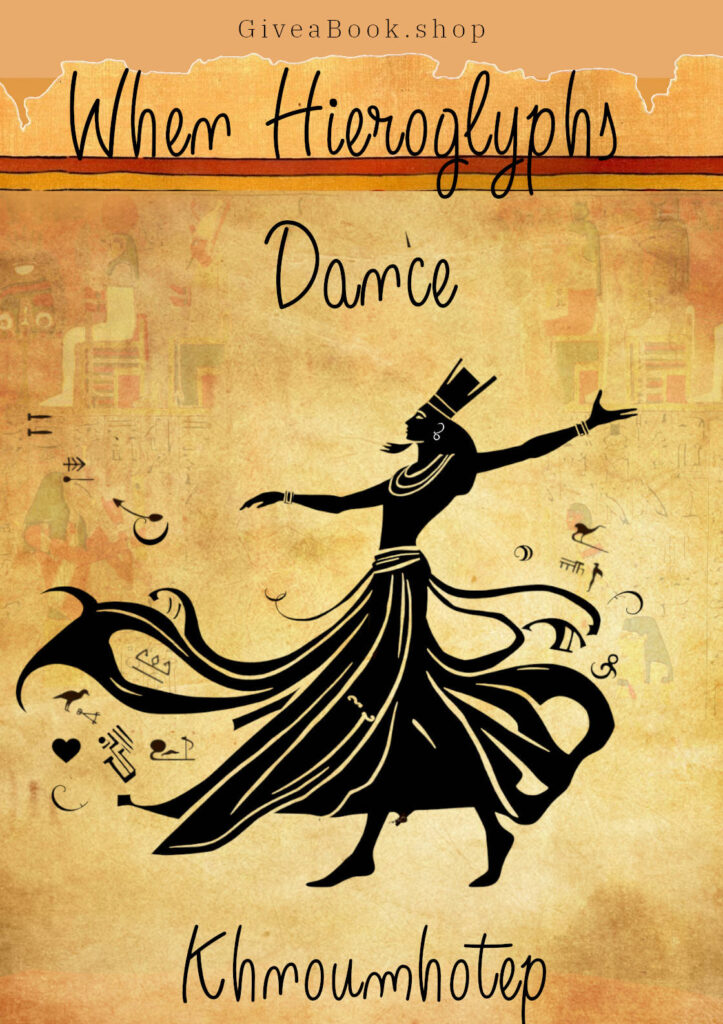
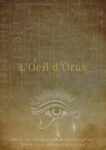
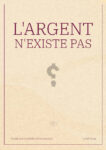
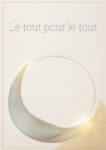
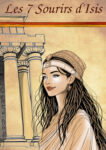
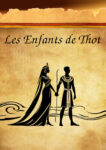
Avis
Il n’y a pas encore d’avis.